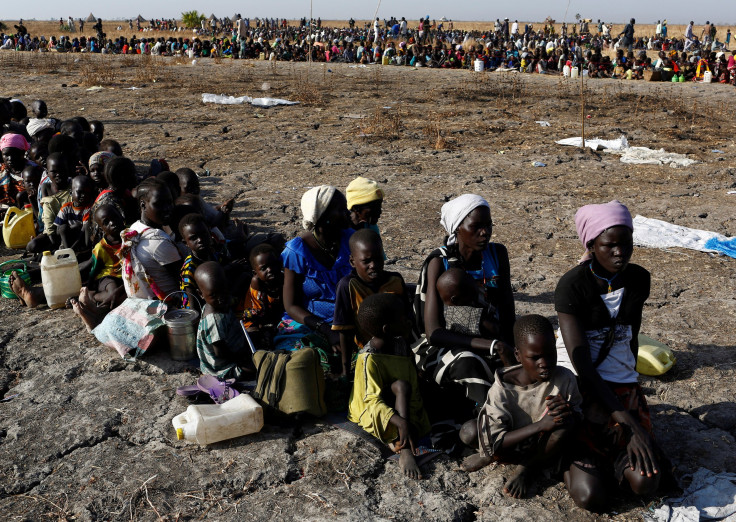Where Is Genocide? UN South Sudan Report Details Ethnic Cleansing Amid Civil War

Ethnic cleansing amid South Sudan’s bloody civil war is nearing genocide, the United Nations reported Monday. Tens of thousands of people have been killed in the five-year armed conflict, causing at least 1.5 million to flee the East African nation, the report said.
The seven-month inquiry by the U.N. Commission on Human Rights into South Sudan's civil war detailed the degree to which ethnic cleansing efforts led to the number of killings in the country that has bordered on becoming genocide, the Associated Press reported Tuesday. The report painted a grim picture of Sudanese government soldiers deliberately starving and bombing ethnic minority communities throughout the civil war.
“Violations have mainly been committed by government soldiers, members of the National Security Service, police officers and militias aligned with government forces," the report said.
The civil war in South Sudan began in December 2013 due to a political rivalry between South Sudan President Salva Kiir, who is a Dinka, which is the country's largest ethnic group, and his former Vice President Riek Machar, who is a Nuer, the second largest ethnic community. Kiir's forces have reportedly gone door-to-door throughout the civil war, oftentimes raping and killing anyone who wasn't a Dinka.
South Sudanese’s military forced members of the Shilluk ethnic community “out of their homes” in January by bombing the town of Wau Shilluk, causing its 20,000 residents to abandon it, the UN report said.
"My people are at risk of physical and cultural extinction," the leader of the Shilluk Kingdom, Kwongo Dak Padiet, said in a statement Saturday.
Food insecurity is peaking in parts of South Sudan, a country at risk of genocide. pic.twitter.com/ff46QBEQLO
— AJ+ (@ajplus) February 22, 2017
Approximately one million people were at risk of starvation in South Sudan as its military has utilized a “scored earth” method of warfare, destroying a tremendous amount of crops in agrarian villages across the country in an effort to deplete rebel forces of their food supplies.
“If we fail to act, South Sudan will be on a trajectory towards mass atrocities,” The United Nations secretary-general, Ban Ki-moon told the Guardian Dec. 19, 2016.
South Sudanese government officials denied that the country is experiencing genocide and ethnic cleansing, telling the Associated Press that the UN report was "not an accurate report."
UN peacekeepers have been deployed in South Sudan since 2011 when the country won its independence from Sudan. There were 13,000 UN soldiers and police in the country, which remains one of the poorest in the world.
© Copyright IBTimes 2024. All rights reserved.






















